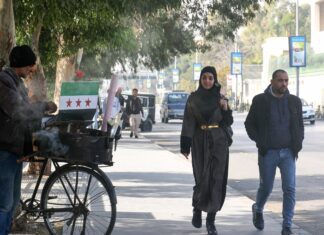
The US and the UN are discussing the possibility of removing Hayat Tahrir al-Sham (HTS) from their respective lists of terrorist organizations, but the decision hinges on strict conditions. According to American officials, the Biden administration has outlined four key demands that HTS must meet to be reconsidered for delisting: guaranteeing political rights, ensuring the unimpeded flow of humanitarian aid, demonstrating a robust commitment to combating terrorism, and addressing concerns regarding Syria’s chemical weapons stockpiles.
The UN’s envoy to Syria, Geir Pedersen, has echoed similar sentiments, emphasizing that delisting HTS would not be a unilateral decision but rather contingent on the group’s actions. Pedersen noted that HTS must demonstrate a willingness to engage in an inclusive political process while prioritizing the protection of civilians. “Removing Hayat Tahrir al-Sham from the terrorist list depends on its behavior and the behavior of other groups,” he said.
HTS, which emerged in 2017 as a coalition of rebel factions – including the al-Qaeda-linked Jabhat al-Nusra – was designated as a terrorist organization by the United States in 2018. Despite announcing its break with al-Qaeda, HTS has been accused of human rights violations, raising concerns among Western governments. However, recent reports suggest that HTS has attempted to rebrand itself as a local governing authority in Syria, distancing itself from its jihadist roots.
US officials have acknowledged the group’s efforts to project a more moderate image. A senior Biden administration official, speaking anonymously to reporters, stated that the US is “monitoring the situation closely” and remains open to reassessing HTS’s classification if the group demonstrates “meaningful progress” toward meeting international demands. “HTS is saying the right things and doing the right things so far, but this is part of a larger mosaic,” the official noted.
The US has also stressed that oversight of Syria’s chemical weapons remains a top priority. Experts have expressed confidence that the situation is under control, but Washington continues to seek guarantees from HTS and other opposition factions to prevent potential misuse.
The discussions have gained urgency following the fall of the Assad regime and the swift rise of revolutionary factions, including HTS, in Damascus. The collapse of Bashar al-Assad’s regime has created new opportunities and challenges for international diplomacy in Syria. While some Western officials remain wary of HTS’s history, others see a chance to stabilize the region by engaging with the group, provided it commits to internationally recognized norms of governance and human rights.
Despite HTS’s attempts to rebrand itself, UN officials remain cautious. Pedersen reiterated that delisting HTS “is not free” and will depend on the group’s ability to fulfill its commitments to an inclusive and stable political transition. Additionally, the group’s compliance with international humanitarian principles will be closely scrutinized.
The possibility of delisting HTS represents a significant shift in Western policy but also underscores the complexity of the situation on the ground in Syria. HTS leader Ahmed al-Sharaa, also known as Abu Mohammad al-Jolani, has been a controversial figure due to his previous ties to al-Qaeda. The group’s efforts to gain legitimacy may face opposition from some international actors and skepticism from Syrian civilians.
While the Biden administration has not ruled out engaging with HTS, officials stress that delisting will only occur if the group meets the outlined conditions. For now, HTS remains under close watch as it navigates the challenging transition from insurgency to governance in liberated Syria








